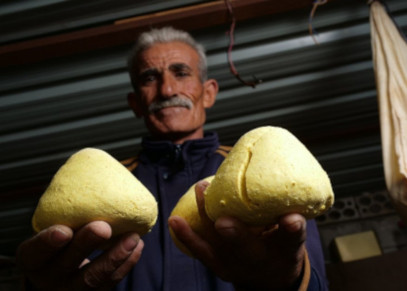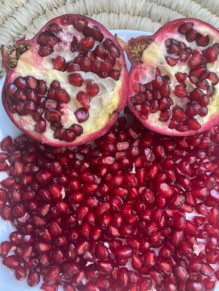On the road to sustainable agritourism in Jordan

Jordan’s delicious mix of cultural heritage and gastronomic delights is set to diversify and supplement the incomes of local food producers through investments that will link them to tourism markets, an effort gathering pace after the first meeting of the Agritourism Development Task Force in early 2024.
Jordan’s Agritourism Development Taskforce gets to work
Tourists seeking a unique blend of traditional cuisine and historic cultural attractions as part of their travel experience could soon be adding an agritourism stay in Jordan to their itinerary. Efforts to build the country’s agritourism sector and promote its delicious food products, including such delights as dates, olive oils, pomegranates, local dairy products and sweet pastries, are now gaining momentum.
The Agritourism Development Task Force held its inaugural meeting in January 2024. It was formed following a study tour to Italy in October 2023 as part of a joint project of FAO and the European Bank of Reconstruction and Development (EBRD) co-financed by the European Union and the European Southern and Eastern Mediterranean Multi-Donor Account (MDA) *. The project’s goal is to strengthen links between agricultural producers and the tourism industry as a way to diversify and supplement rural incomes.
“On the tour, most of the task force members saw first-hand how agritourism can work as part of a rural development strategy,” says Dr Aghadir Jweihan, Director General of the Princess Taghrid Institute a local NGO that facilitates the task force’s activities. “It was a good occasion to reflect on the importance of supportive policies and cooperation between public authorities and private stakeholders in an established agritourism sector before we got to work on developing our own here in Jordan.”

© FAO Ms. Sirar Khawaja
A unified approach for a sustainable sector
This crucial public and private sector collaboration is reflected in the mix of organizations that participate in Jordan’s Agritourism Development Task Force. These include the Ministry of Agriculture, the Ministry of Tourism and Antiquities, conservation organizations, food producers, and representatives from the hotel, restaurant and catering sector.
“Having multi-stakeholder perspectives represented through the task force membership means we are well-placed to unify the efforts of different institutions towards a sustainable sector that involves, empowers and benefits local communities,” Jweihan explains. “It also builds a foundation for these efforts to continue beyond the project.”
A menu of next steps
Following lessons learned during the Italian study tour visit, the members are aware that the road to its agritourism sector development will take time to navigate. It will need new policies that support and incentivize agribusiness development, ensure that environmental protection measures and food safety standards are in place and that the well-being of visitors and local communities is front and centre – target communities will be included, consulted, and engaged throughout the process.
The members will also work to mobilize investment for infrastructure development, educational and capacity-building programmes on hospitality, food quality, tourism management and sustainable agricultural practices.
All this is good news for local food producers, Jordan’s rich and diverse traditional food culture, and the increased number of tourists who will get to experience the country’s unique culinary dishes first-hand.
For more on the project, visit: Agtivate.org
*The EBRD manages the SEMED MDA’s donor funds. The contributors are Australia, Finland, France, Germany, Italy, the Netherlands, Norway, Sweden, Spain, Taipei China and the United Kingdom.
